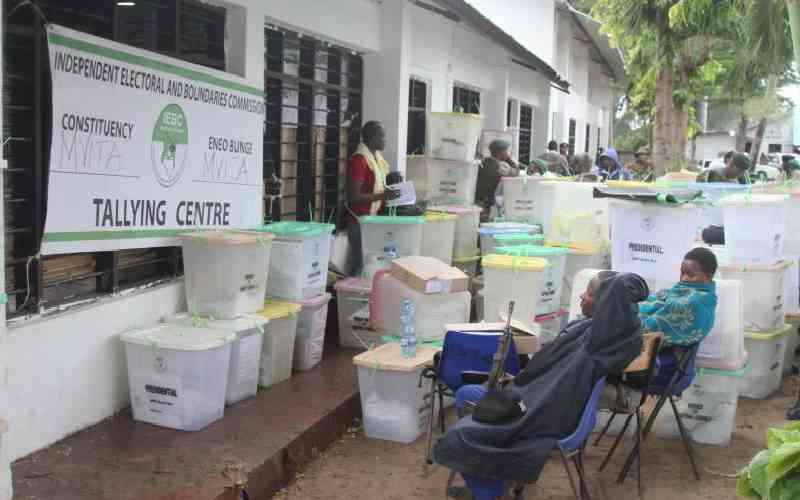A recent gazette notice by the Independent Electoral and Boundaries Commission (IEBC), has deeply unsettled Kenyans living abroad.
The notice announced continuous voter registration across the 290 constituencies, but went on to state that: “The Commission shall issue a notice for the commencement of registration of citizens as voters and the regular revision of the voters’ roll for citizens residing outside the country and prisoners.”
This phrasing effectively lumps Kenyans in the diaspora with prisoners, placing them in the same category of restricted or exceptional citizens. For millions of Kenyans abroad, this was not only demeaning but a betrayal of trust.
For months leading up to this announcement, the Diaspora Technical Working Group (DTWG) — a coalition of diaspora leaders and advocates — had engaged the IEBC physically and virtually. The agenda was clear: To ensure the commission honoured its constitutional obligation to facilitate diaspora voting by increasing voter registration and polling centres abroad, streamlining logistics, and guaranteeing accessibility to all eligible citizens. The discussions often ended with assurances from IEBC that diaspora concerns were being taken seriously and that concrete steps were underway.
Follow The Standard
channel
on WhatsApp
The gazette notice, therefore, came as a rude shock. Instead of demonstrating progress promised in those deliberations, IEBC reduced diaspora voting to an afterthought, grouped in the same breath as prisoners, and deferred to a later, unspecified notice. For a community that has invested time, money, and effort to engage constructively with the commission, this decision signals not just neglect but disrespect.
Kenyans abroad are not prisoners of the state. They are free citizens who retain full constitutional rights under Article 38 of the Constitution which guarantees every Kenyan the right to political participation. Unlike prisoners — whose liberties are curtailed by virtue of criminal conviction — diaspora citizens voluntarily live abroad, often as workers, students, professionals, and entrepreneurs. Their remittances have become the single largest source of foreign exchange, surpassing tea, tourism and horticulture combined. In every sense, they are contributors, not convicts.
To frame them in the same category as prisoners is to demean their sacrifices and strip away the recognition they deserve. It conveys an alarming message: That their participation in Kenya’s democratic process is conditional, secondary, or somehow less legitimate than that of citizens at home.
This classification also raises doubts about IEBC’s sincerity. If, after months of consultations with DTWG, the commission can still publish such a notice, what does that say about the weight it attaches to diaspora engagement? The phrase “when words betray deeds” rings true here: Assurances of inclusion and respect were given, but the official action tells an entirely different story.
Moreover, this decision undermines Kenya’s reputation internationally. Our diaspora are cultural ambassadors, lobbyists, and investors who elevate Kenya’s global standing. To see their government officially describe them in the same terms as prisoners is diplomatically embarrassing and politically reckless.
The IEBC had an opportunity to show progress by gazetting diaspora registration alongside the national exercise. Instead, it opted for delay and a demeaning categorisation. This is not a matter of semantics; it is about dignity, rights, and national unity. Words in official documents shape how citizens feel about their country and its institutions. And today, diaspora Kenyans feel diminished and excluded.
The IEBC should immediately clarify and correct this misstep. Diaspora Kenyans demand to be recognised not as prisoners of circumstance but as free, patriotic citizens entitled to the same urgency and respect in electoral processes. The commission must move beyond promises to concrete action — establishing more registration and polling centres abroad, communicating clearly, and ensuring timely inclusion in the voter roll.
Anything less will not only disenfranchise millions but also betray the spirit of Kenya’s Constitution.
Follow The Standard
channel
on WhatsApp
By Thomas Musau
